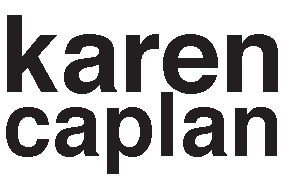Many company leaders hold all employee “Town Hall” meetings periodically. Or at least that’s what they call them. I prefer the term “All-Hands” meetings.
The term “Town Hall” actually has its origins in civic gatherings where there was discussion, debate and voting on issues.
That’s why I prefer the term “All-Hands” when referring to gatherings of employees at a company. Town Hall meetings are meant to encourage open dialogue, discussion, and lots of questions, where all-hands meetings emphasize the sharing of information (by leaders) and encourage a sense of community within a company.
As a company leader, it can be a little nerve-wracking to think about standing up in front of a large group of your employees to share company information. And if many on your team work remotely, it may be an in-person gathering, along with a connection to Zoom so all are included.
During my time as CEO of my company, my all-hands meetings evolved from quarterly meetings in person with simultaneous translation into Spanish so everyone on my team felt included and informed, to monthly gatherings in our offices, with a Zoom camera for our remote staff, plus a bi-lingual team member standing next to me to translate live.
Why did I decide to do monthly meetings, even though some of my managers thought it was unnecessary? Because I knew that the way to build a culture of trust and respect, included treating everyone on the team equally. My top salespeople stood next to packers on our production line. We acknowledged birthdays and anniversaries every month and each person was called to the front of our gathering to get a cupcake with a candle on top! Someone’s birthday can be the one day of the year that they feel special.
If you are thinking about the benefits of all-hands meetings within your company, here are my suggestions to make them productive, successful and beneficial:
- Put them on the calendar at least 2 weeks in advance. That way no one thinks there is an emergency or bad news. I usually scheduled my meetings a year in advance and held them on Tuesdays at 10:00am (this was the best time to not be disruptive to operations). My HR person put them in Outlook on everyone’s calendar.
- Preparation is key. You shouldn’t just get up and shoot from the hip. I always had one or two main agenda items I wanted to update my team on. I wrote out my script and practiced it the day before, so it seemed natural when I spoke. I wasn’t afraid to hold my outlined notes, typed on a piece of paper, so I didn’t forget a subject that I planned to review.
- I shared both successes and challenges in my meetings. If we landed a big client, I would credit the salesperson and have them raise their hand, so everyone knew them. Because I believed strongly that the more people in my entire company who understood how we make money, and what the “business of the business” was, I always talked in business terms. That made everyone in my company, from the janitor to the managers, feel like they were part of the team.
- I made sure any business examples I shared acknowledged every department. There is nothing worse than a CEO who only talks about successes in the sales department. There are successes in operations, finance and everywhere! If you want to build a company-wide team, then be sure to acknowledge every team periodically.
- My meetings were usually about 30 minutes. And we always served food (even if it was cupcakes for everyone and water or sodas). 30 minutes feels like a break and food is always appreciated. If you are a grower and just harvested a new block of apples, grapes or baby carrots, why not sample your products as part of your meeting and highlight the team that did the harvesting?
A leader needs to put thought into whether they want to make a commitment to hosting regular communication meetings. It is definitely a commitment. Your employees will notice if you waiver and skip meetings or suddenly stop them. Once you start hosting regular meetings, I believe you will find improved communication in your company, and a common language. And the end result is better performance.
Are you ready to make that commitment? I hope so!
Onward and Upward,

If you’re enjoying what you’re reading, please consider recommending it to others. They can sign up here.





